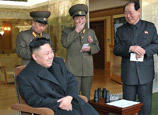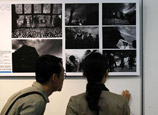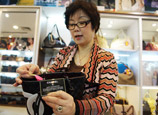
Despite an apparent rebound in January sales after almost six months of decline in China, Japanese carmakers continue to be mired in sluggish sales.
Numbers after the first month of the year looked promising for Japan's big four, but industry observers said the growth was likely due to fewer working days last January when the Spring Festival was celebrated, creating a much lower baseline for comparison.
For February, both Toyota and Nissan both reported drops of about 46 percent, while Honda and Mazda decreased 27.1 percent and 24.7 percent respectively.
A spokesperson for Toyota said that it is still too early to see a trend, so the company needs to closely watch the next few months, which are without influence from holidays.
A boycott in the wake of China's territorial dispute with Japan over the Diaoyu Islands sent sales of Japanese products reeling last fall.
Whether the storm has passed or not, Japanese carmakers are adjusting their strategies in a bid to maintain share in a market dominated by their German counterparts.
Statistics from the China Association of Automobile Manufacturers show that German brands had 19 percent of the market in January, with Japanese brands holding just under 13 percent.
US-brand vehicles had about 12 percent, with China's domestic vehicle sales accounting for more than 43 percent of the overall market.
Before the islands dispute started last September, Japanese auto brands had 20 percent of China's auto market. By the end of December, the ratio dropped to 16 percent.
Although Japanese automakers might have recovered some of their losses, still more growth was reported by the German manufacturers, which continue to introduce new models and adjust their strategies in the country.
 |
















 Over 900 dead pigs found floating in Shanghai river
Over 900 dead pigs found floating in Shanghai river


![]()
